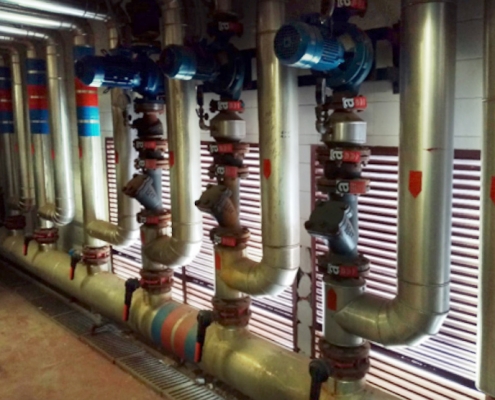Operation and Maintenance
Environmental analysis for the determination of asbestos and other fibers in the environment, in the technical rooms of METRO de MADRID.
METRO DE MADRID
Country: Spain
Year: 2020- 2023
Environmental sampling is done on different lines and in the stations, workshops, installations and installations of METRO de MADRID network.
The purpose of the INSE RAIL project is to carry out periodic environmental analyses that confirm that the levels of fibers in the environment of the rooms where materials with asbestos are identified, and in accordance with internal regulations regarding the periodic inspection of the condition of these materials, specifically Specific Instruction IE-0010 “Identification and control of MCA in installations and equipment of METRO de MADRID”, does not exceed the limits established in the regulations currently in force.
The METRO de MADRID Network has infrastructure whose age of construction may involve the presence of asbestos in some of the lining materials, conduits, insulation, etc. …., as well as in equipment materials.
Environmental sampling and analysis for the detection of asbestos fibers in the environment ensures that the air in the technical rooms of the network of METRO de MADRID that have materials with asbestos, is below the decontamination limit (0.01 fibers/cm3).
Environmental sampling is done on different lines and in the stations, workshops, installations and installations of METRO de MADRID network.
The scope of the engineering and environmental safety service includes:
- Carrying out environmental sampling in technical rooms located throughout the METRO de MADRID Network and Infrastructure.
- Analysis of the samples in an approved laboratory.
- Preparation of the report of the analysis results to determine asbestos-containing fibers in environment.
- Preparation of the documentation required for compliance with METRO de MADRID’s internal regulations
Asbestos is a flame-retardant and insulating material that poses significant health risks, despite the fact that for many years it was used extensively in many prefabricated products and used in the construction sector, in transport, and in protective and insulating textiles. In 2002, its manufacture, commercialization and use was prohibited because it was considered a group-one carcinogen, according to the World Health Organization.




Diagonal tram extension. (Barcelona)
Services to coordinate the Metro de Málaga works for handover to the concessionaire and commissioning supervision